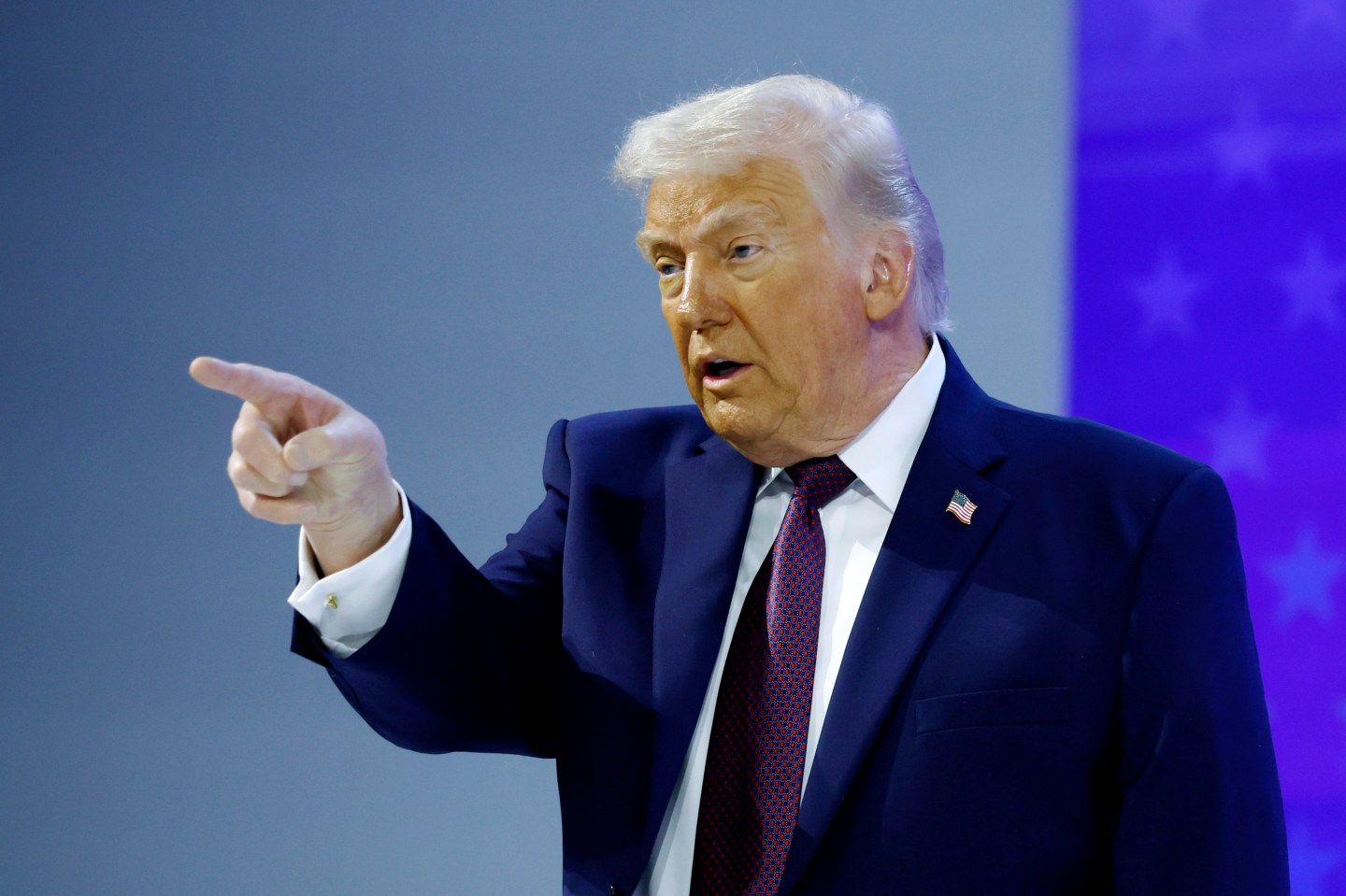President Donald Trump is pushing full-steam ahead on tariff measures he says will fix trade imbalances with other countries, and at the same time bring manufacturing jobs back to U.S. Shores. The second of these goals enjoys broad support among his fellow Americans, who overwhelmingly say the U.S. Would be better off with more manufacturing jobs. But only if they’re not the one stuck in the factory.
A chart that went viral on multiple social media platforms over the weekend highlights this major tension when it comes to reshoring factory jobs: While Americans say they want more manufacturing back in the U.S., they do not personally believe they’d be better off working one of them.
“America would be better off if more people worked in manufacturing.”
— Frank Luntz (@FrankLuntz) April 13, 2025
• 80% of Americans agree
• 20% disagree
“I would be better off if I worked in a factory.”
• 25% of Americans agree
• 73% disagree
• 2% currently work in a factory
👉🏻 https://t.co/ycnHVZ1gT1 pic.twitter.com/4NXb0GLK5L
The graphic, made by the Financial Times and based on a 2024 survey from the Cato Institute, shows that while 80% of Americans believe the country would be better off with more manufacturing jobs, just 25% believe they would individually be better off working in a factory.
“It’s a result that holds across class, education, and racial lines,” wrote Colin Grabow, associate director at Cato’s Herbert A. Stiefel Center for Trade Policy Studies, when the survey came out. “The most enthusiastic group, those aged 18–29, still registered just 36% interest in manufacturing employment.”
Grabow went on to note that as of May 2024, there were around 600,000 open positions in manufacturing (there’s almost 500,000 open today, according to the St. Louis Federal Reserve), so there isn’t exactly a shortage of roles out there. Instead, there is a disconnect between how Americans in general think of manufacturing and how they view it for themselves. This is one reason why the National Association of Manufacturers and the former Secretary of the Navy under President Joe Biden both called for increased immigration, Grabow notes.
“Such jobs can’t find enough interested Americans to fill them,” he wrote.
Manufacturing workers themselves report “markedly” lower personal satisfaction with their jobs than other workers, according to the Pew Research Center. They also report less satisfaction with their pay, health insurance, and other benefits, and flexibility of their work hours.
“Perhaps the better question, however, is not why Americans believe the country needs more manufacturing employment but why politicians regularly emphasize the importance of jobs in which Americans—both in word and deed—continue to show little interest,” he wrote.
America’s manufacturing decline
In the Cato survey, published last August, Americans expressed more favorable opinions on “globalization,” “international trade,” “free trade,” and “trade deals” than unfavorable. Over 60% of respondents favored “increasing trade with other nations,” compared to just 10% who said they opposed it. Two-thirds, 66%, of respondents said international trade had a mostly good effect on the U.S. Economy.
Tariffs have become the centerpiece of Trump’s economic and foreign policy agendas at the start of his second term as president. While economists and the public seem wary of the effects tariffs will have on the U.S. And world economies—as evidenced by the multiple fissures running through the financial sector and markets over the past two weeks—Trump has staked his economic legacy on the policies.
“Jobs and factories will come roaring back into our country,” Trump said last week. “And ultimately, more production at home will mean stronger competition and lower prices for consumers.”
America was once a world leader in automotive and steel manufacturing, but has been losing those jobs since at least the 1980s. In subsequent decades, the U.S. Has shifted to a more knowledge-based economy. That’s left many Americans in the cold, as once-thriving industrial hubs have stagnated and wealth inequality has soared.
The Trump administration’s big pitch is that reworking the world order will help the middle class that was left behind. Commerce Secretary Howard Lutnick promised Americans will be the ones “screwing in little screws to make iPhones,” while Treasury Secretary Scott Bessent said fired federal workers will “give us the labor that we need for the new manufacturing.”
Economists and international trade experts are not convinced it will work. One big reason why: Even if factories are reopened in the U.S.—a process that could take years and hundreds of millions of dollars and is hindered by Trump’s constantly changing policies—America relies on imports from other countries, especially China, to a much larger degree than other countries rely on the U.S., according to Goldman Sachs. Goods cannot be made in the U.S. Without importing the raw materials from elsewhere first.
Trump implemented some tariffs during his first term in office. Research on those found that they didn’t bring back jobs in protected sectors.
“The high costs of new tariffs threaten investment, jobs, supply chains, and, in turn, America’s ability to outcompete other nations and lead as the preeminent manufacturing superpower,” Jay Timmons, the president of the National Association of Manufacturers, wrote after Trump announced his plans.
And Americans, for their part, are also anxious. Some 62% of middle-income Americans report stressing over their finances last quarter, according to Primerica’s latest Financial Security Monitor. That’s up from 57% during the fourth quarter of 2024. And 46% now expect to be worse off financially in the next year, compared to 27% who reported the same thing at the end of last year.
This story has been updated to clarify it was the former Secretary of the Navy who called for increased immigration.













